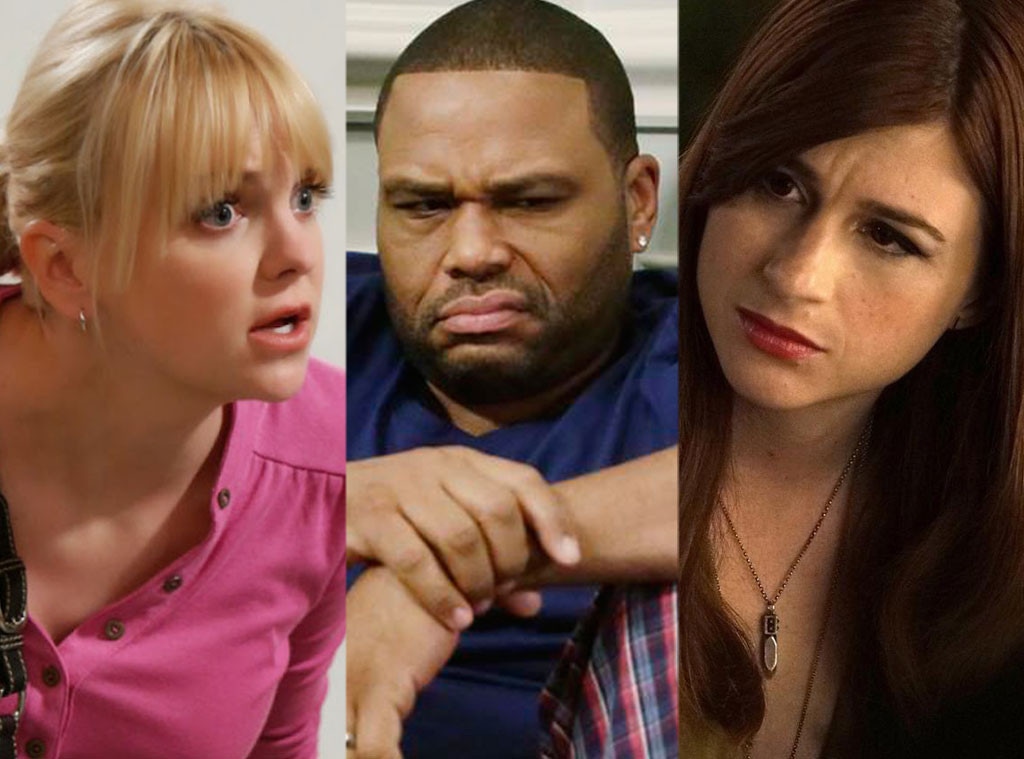 CBS, ABC, FXX
CBS, ABC, FXXWhat Black-ish did on TV last night felt nothing short of revolutionary.
In the episode, simply entitled "Hope," series creator Kenya Barris penned a stirring and searing look at what it means to be black in America today. While the entire Johnson family watched as the verdict came down in highly-publicized court case involving alleged police brutality and an African-American teenager, Andre (Anthony Anderson) and Bow (Tracee Ellis Ross) found themselves conflicted over how best to fill their youngest in on the realities of the world, leading to an honest, thought-provoking and tear-jerking conversation with the entire family. A conversation likely not too dissimilar from those taking place in homes all across the country every time a case like the one featured in the episode occurs.
In other words, last night Black-ish stopped being polite and started getting real. And at a time when Beyonce simply asking ladies to get into formation during the Super Bowl immediately inspires racially-charged outrage, the fact that an ABC sitcom so unapologetically—and successfully—went there is something worth applauding.
The episode marks the latest in a string of TV comedies willing to step outside their accepted structure of hi-jinks and hilarity and let a little bit of reality finds its way in. Just last week, CBS' Mom deftly navigated the surprising loss of a young addict from Christy (Anna Faris) and Bonnie's (Allison Janney) AA support group, continuing the show's admirable commitment to presenting an honest look at addiction in America. Meanwhile, FXX's You're the Worst stunned viewers last fall with a touching and—here's that word again—honest exploration of Gretchen's (Aya Cash) clinical depression. It's that honesty about the world that has earned these shows acclaim over the past few years—and that's because of how rare it can be to find among their peers. But it didn't used to be this way.
Beginning with All in the Family in 1971, Norman Lear almost single-handedly revolutionized the TV sitcom, veering from the "aw, shucks" Sherwood Schwartz-branded innocence of Gilligan's Island and The Brady Bunch and into something a little more willing to reflect the world outside the screen. Think Archie Bunker's (Carroll O'Connor) many rants on race and homosexuality. Think Maude's (Bea Arthur) fierce feminism, including her decision to receive an abortion in 1972—a full two months before Roe v. Wade made abortion legal nationwide. To say that this caused a stir would be one hell of an understatement, but Lear's work was also wildly successful. It spoke to a population that was disillusioned by Nixon, the Vietnam War, and Watergate. People were mad as hell, and they wanted their TV to be, too.
Of course, that success led to the concept of the "very special episode" nearly taking TV over as we marched into the '80s. Diff'rent Strokes (from Lear's own Tandem Productions) and its spin-off The Facts of Life went to the well, and often, diluting the power of the concept—and the desire for it. When people look back on particular episodes of Diff'rent Strokes—the one touching on pedophilia, namely—it's not often done positively. There were so many of these episodes, none of them created with much skill, that by the time Blossom was taking them on in the early '90s, the idea of the "very special episode" had become a punchline.
The aversion to these episodes likely led to Seinfeld's on-set motto "no hugging, no learning" among its writers and cast. And its the success of Seinfeld—and the relative social stability of the '90s—that shaped comedy through the 2000s, comedy that cared very little for honesty or reality. Instead, a rat-a-tat joke pacing ruled supreme (which isn't such a bad thing since these shows are designed, namely, to make us laugh). Think 30 Rock. Think Happy Endings. Hell, even Parks and Recreation and The Office (which could get us to cry like no other) never got too bogged down with the woes of the world.
That said, there have always been outliers. Roseanne sucessfully bucked the rich, city-dwelling trend of '90s comedy, opting for a look at the rough, blue-collar world—and the problems that tend to plague it—that its creator knew best. The Fresh Prince of Bel-Air had us in tears when Will (Will Smith) asked Uncle Phil (James Avery) why his dad didn't want him. How I Met Your Mother experimented with the form when it decided to devote a good run of episodes in season six to Marshall's (Jason Segel) grief after the death of his father. Even The Simpsons got real for a minute when Homer's "Do it for her" wall with Maggie's photos was revealed at work. And its those episodes that we remember much more than anything The King of Queens ever did.
When sitcoms get real, they highlight just how important they still can be. By looking at the real world honestly, and laughing at the absurdity of it all, we find catharsis—and maybe even enlightenment. And slowly, that willingness to be real has made its way back into the art form, in part because, well, there's a lot to talk about these days. There's no doubt that for many watching Black-ish last night as it refused to shy away from the realities of the world, a conversation was started—one that no episode of 20/20 or segment on the local news could ever hope to inspire. A desire to effect change and a half-hour of laughs? We'll take more of that, please.
Black-ish airs Wednesdays at 9:30 p.m. on ABC.